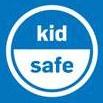SHERYL COHEN
THE AUTHOR IS THE EDUCATIONAL PSYCHOLOGIST AND EDUCATIONAL DIRECTOR OF KIDSAFE SA
Proactive parenting is a strong defence against child abuse. The list is part of a broader ongoing platform to focus attention on and eradicate child abuse, are:
Ten top tips for parents to think about when talking to their kids about abuse prevention:
Be aware of adults who want to spend more time with your kids than you do.
- It is not only vulnerable, problematic or dysfunctional children who get abused. Abuse is not a reflection of bad mothering, family divorce or any other issue. It can occur to the most normal, loving family.
- Children can’t protect themselves against abuse. That’s why we can’t put the full responsibility onto kids. Preventative programmes carried out by Kidsafe focus on making adults aware of the signs and symptoms. And empowering kids with permission to tell.
Saying “no” can lead to kids feeling bad about not being able to stop abuse. Statistics show that in 96 per cent of child sexual abuse cases, the child knows the perpetrator. Saying “no” is tricky. We prefer to teach children to “tell a trusted adult” and not to stop until someone listens!
 Our aim as parents is to make kids aware – not to scare! Talk to your kids in a matter-of-fact way, no hysteria, fear or anxiety – as you would about swimming safety or road safety.
Our aim as parents is to make kids aware – not to scare! Talk to your kids in a matter-of-fact way, no hysteria, fear or anxiety – as you would about swimming safety or road safety. - We all have feelings. Feelings are important. We all have positive and negative feelings. This is normal. If something doesn’t feel right… it might not be! This is called an “uh-oh” feeling; or a confused feelings or an uncomfortable feeling. If you have one of those feelings, TELL! Discuss it with someone on your Helping Hand list.
- Develop a Helping Hand list of at least five adults your child feels comfortable talking to about his or her feelings. Let your child tell you who they are. The list can be from school; at shul; at gymnastics; soccer; ballet; barmitsvahs, etc.
- There is safe-touch and unsafe-touch. Any part of the body which is covered by a swimming suit is private. Touching private parts by others is not-allowed, unless it is to keep you clean or well.
- Explain the difference between safe secrets and unsafe secrets. When dad has bought mom a gift for her birthday and asks the kids not to tell, that is a safe secret. Unsafe secrets come with a bad feeling and a threat “don’t tell or else…” Encourage children to share unsafe secrets.
- Should a child disclose abuse, listen and respect their feelings. Tell the child he/she is very brave for sharing and that it is not his/her fault. Acknowledge that you will do what you can to make this child safe again and then seek professional guidance immediately.
- When a child abuses another child, it means s/he needs help, not punishment, shame, blame, etc. Help or treatment comes in the form of reporting the incident to professionals who work in this area. The professionals will assess and recommend a treatment plan.
KIdsafe believes that we all have the ability and the duty to create a safe community for our children. The organisation believes it is the responsibility of every parent, school principal, and organisation working with children, to open community eyes and take proactive steps towards protecting Jewish children. Kidsafe is committed to guiding parents, schools, camps and shuls through the important steps towards child protection.
SEE BELOW PIC FOR CONTACT DETAILS
 * For more information, please contact info@kidsafe.org.za or visit www.kidsafe.org.za or call 079 388-5428
* For more information, please contact info@kidsafe.org.za or visit www.kidsafe.org.za or call 079 388-5428